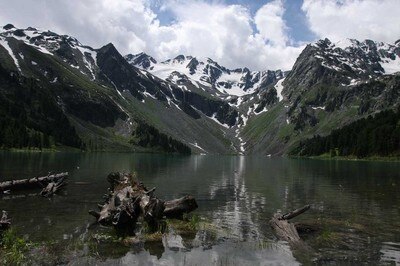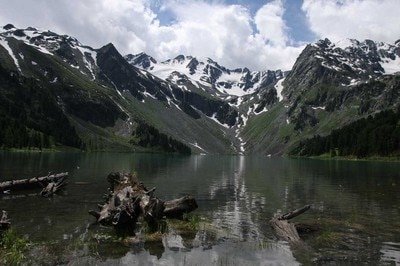Russia's Altai Republic has a population of more than 200,000 people, the majority of whom are engaged in animal husbandry and live and work in the Altai Mountains and steppe. One of the biggest challenges impeding development in remote regions such as Altai is unemployment, which in some villages in the region reaches 90%. As a result, annual income for families in the area is low and many rely on poaching and trading plants and animals, which threaten the region's biodiversity. To ensure the protection of Altai's unique natural wildlife, improvements are needed to increase standards of living, as well as generate alternative opportunities for the local population to generate income.
A joint program by the World Wildlife Fund and the Citi Foundation entitled Tourism Development in the Altai Mountains aims to develop small business as a means of preserving the unique natural environment of the Altai Republic. As a result of the program, 129 entrepreneurs have received financial assistance totaling 5.5 million rubles. Participants in the program have taken part in educational seminars covering the basics of running a business. They have also participated in experience-sharing sessions tailored specifically to the projects of each entrepreneur.
One of the program's objectives is to provide local residents with means for opening their own legal businesses that will facilitate the conservation of the region's natural environment: rural tourism and eco-tourism in the habitat of the wild argali mountain sheep and the snow leopard, the production of souvenirs and other items from felt, animal husbandry and more.
A top priority of the program is the development of ecotourism. Ecotourism provides local people many business opportunities including guesthouse services, organization of excursions, development of handicraft studios, transport and horse rentals, creation of souvenir shops and museums.
The development of a sustainable ecotourism environment is especially important as tourism in the region is rapidly developing, as improvements have been made to federal tourism programs and the local airport recently launched a regular flight service with the capital of Russia, boosting the inflow of tourist from Moscow by 20% this summer. In summer of 2012 tourist traffic to the Altai Republic increased by 12% (1.35 million visits). Considering the lack of industrial potential and the pressing need to preserve the pristine nature of the region, ecotourism is considered the most promising way to improve the standards of living of residents.
Another unique aspect of the program is the nature conservation component. The Citi Foundation and WWF believe that this unconventional approach to conserving nature by improving the quality of life of local residents through small business development is a means of diverting the population away from illegal poaching and foraging as sources of income.
In addition to direct material assistance, the program also entails training for local residents on how to develop your own business and running an eco-business. All participants were welcome attend the seminars and learn the basics of business. Starting this year, however, the seminars will be oriented toward increasing the knowledge and professionalism of entrepreneurs who are already operating their own projects.
This unique program of the World Wildlife Foundation and the Citi Foundation is helping facilitate the sustainable development of the Altai region. The program is aimed at eliminating not only the consequences of the problem - the disappearance of the region's invaluable flora and fauna - but also the underlying cause: the low living standards of the local population. Now that the people of Altai have opportunities to develop their own small businesses and to receive a stable, legal income, the hope is that this will decrease interest in illegal activities as a means of subsistence. Furthermore, we are counting on the Altai people to actively engage in the conservation of the natural and cultural heritage of the region as a source of economic well-being.

